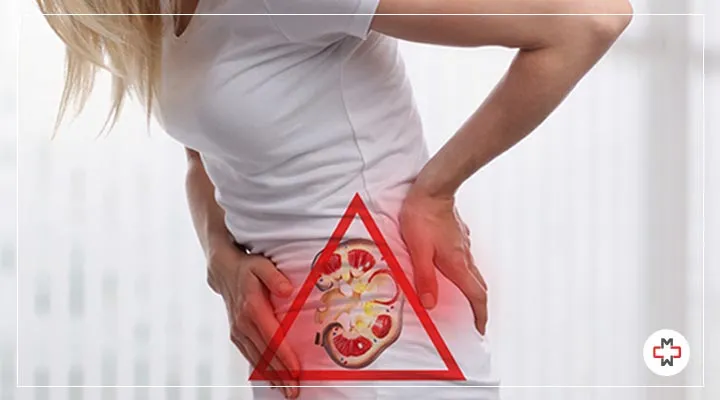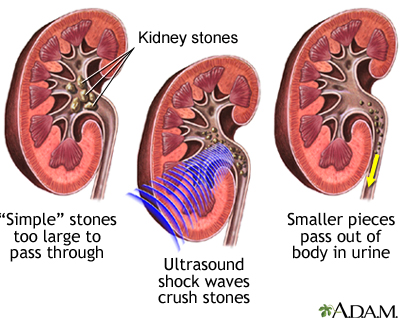Kidney Stones vs UTI: Comprehending the Overlapping Symptoms and Treatment Techniques
Kidney Stones vs UTI: Comprehending the Overlapping Symptoms and Treatment Techniques
Blog Article
Discovering the Manifestations and Causes of Kidney Stones in Contrast to Urinary Tract Infections: A Thorough Guide
The expedition of kidney stones and urinary system tract infections (UTIs) reveals a complex interplay of signs and symptoms and underlying reasons that necessitate mindful evaluation. While both conditions can bring about hematuria, they present distinct clinical functions and emerge from different etiological variables. Comprehending the subtleties of each problem is vital for effective diagnosis and administration. What are the vital differences in their signs, and exactly how might these notify therapy strategies? The response to these inquiries might provide important insights right into the avoidance and treatment of these usual urological problems.
Summary of Kidney Stones
Kidney stones, also referred to as renal calculi, form when certain substances in the urine crystallize and accumulation, leading to the development of hard down payments within the kidneys. These rocks can differ in dimension, ranging from a grain of sand to a golf sphere, and can be made up of numerous products, the most typical being calcium oxalate, uric acid, struvite, and cystine. The formation of kidney stones is affected by numerous aspects, consisting of dietary practices, fluid intake, and genetic predisposition.
Signs and symptoms of kidney rocks might include severe discomfort in the back or side, blood in the pee, queasiness, and frequent urination, especially as the rock relocates via the urinary system tract. Diagnosis normally includes imaging studies such as ultrasound or CT scans, alongside urinalysis to recognize the stone's make-up.
Therapy choices vary based upon the size and sort of rock, as well as the severity of signs and symptoms (Kidney Stones vs UTI). Little stones might pass normally with boosted fluid consumption, while larger rocks may call for clinical interventions such as lithotripsy or medical removal. Recognizing the pathophysiology and danger aspects connected with kidney rocks is necessary for effective avoidance and management
Introduction of Urinary System Tract Infections
Urinary system tract infections (UTIs) are common microbial infections that affect any kind of part of the urinary system, consisting of the kidneys, ureters, bladder, and urethra. They primarily take place when bacteria, usually from the intestinal system, enter the urinary system, leading to inflammation and infection. UTIs are classified into two major types: difficult and uncomplicated. Uncomplicated UTIs generally happen in healthy and balanced individuals with typical urinary system systems, while complex UTIs might emerge in individuals with underlying problems, such as architectural abnormalities or endangered immune systems.
The prevalence of UTIs is notably higher in ladies than guys, largely as a result of anatomical differences, such as a shorter urethra. Danger aspects consist of sex-related task, certain contraceptive methods, urinary retention, and dehydration. The diagnosis of UTIs is typically verified with pee examinations, which may reveal the presence of germs, white blood cells, or red blood cells.

Signs And Symptoms of Kidney Stones
The discomfort associated with kidney stones can show up in numerous ways, typically leading individuals to seek clinical interest. One of the most usual signs and symptoms is serious pain, typically local in the reduced back or side, which may radiate to the abdominal area or groin. This discomfort, typically described as sharp or cramping, can take place instantly and may fluctuate in strength.
Furthermore, individuals might experience hematuria, or blood in the urine, which can range from tiny total up to noticeable staining. This symptom might be gone along with by changes in urinary system routines, such as increased regularity or seriousness, as well as pain during peeing. Queasiness and throwing up are likewise prevalent, usually resulting from the body's response to intense discomfort.
In some cases, individuals may experience high temperature and chills, specifically if a second infection develops due to the obstruction brought on by the stones. In general, the combination of serious pain, hematuria, transformed urinary system patterns, and intestinal signs and symptoms can provide considerable understanding into the presence of kidney rocks, necessitating timely clinical assessment and intervention. Comprehending these signs and symptoms is crucial for timely medical diagnosis and reliable monitoring of the condition.
Symptoms of Urinary System Infections
Infections within the urinary system system commonly offer a range of unique signs that can dramatically impact life. The most common signs consist of a consistent desire to pee, often accompanied by a burning sensation during urination, moved here called dysuria. Individuals may also experience increased frequency of urination, creating tiny quantities of pee each time.
Other noteworthy signs include foul-smelling or cloudy pee, which might suggest the existence of germs or pus. Sometimes, pee may appear red or pink as a result of the visibility of blood, a problem called hematuria. Additionally, individuals might experience pelvic pain or pressure, which can even more exacerbate the feeling of urgency.
Systemic signs and symptoms might likewise manifest, such as high discover this temperature, cools, and tiredness, especially if the infection has actually risen to the kidneys. It is important to acknowledge these symptoms early, as unattended urinary tract infections can lead to extra serious problems. Kidney Stones vs UTI. Motivate clinical attention is suggested when these signs are observed, permitting ideal diagnostic evaluation and therapy to minimize discomfort and prevent more health and wellness issues
Root Causes Of Each Condition
Often, kidney rocks and urinary system tract infections develop from distinct yet in some cases overlapping reasons that can influence individuals in a different way. Dehydration, not enough fluid intake, and high-sodium diet plans can aggravate these problems, promoting condensation within the urinary system system.

Recognizing these unique causes is important for prevention and treatment. Kidney Stones vs UTI. While lifestyle alterations might alleviate the danger of kidney rocks, proper hygiene and prompt therapy of urinary system system infections are important for decreasing their reappearance and connected issues
Verdict
In recap, kidney stones and urinary system system infections present distinct symptoms and underlying reasons. Kidney rocks are identified by serious discomfort and metabolic aspects, while More about the author urinary tract infections mainly involve bacterial infections leading to urinary seriousness and discomfort.
The expedition of kidney stones and urinary system infections (UTIs) exposes an intricate interplay of signs and symptoms and underlying reasons that warrant careful assessment.Urinary system system infections (UTIs) are usual bacterial infections that affect any part of the urinary system, consisting of the kidneys, ureters, bladder, and urethra.Often, kidney stones and urinary system infections emerge from unique yet in some cases overlapping causes that can influence people differently.In recap, kidney stones and urinary system infections present distinct symptoms and underlying causes. Kidney stones are identified by serious pain and metabolic variables, while urinary system system infections mainly entail microbial infections leading to urinary urgency and discomfort.
Report this page